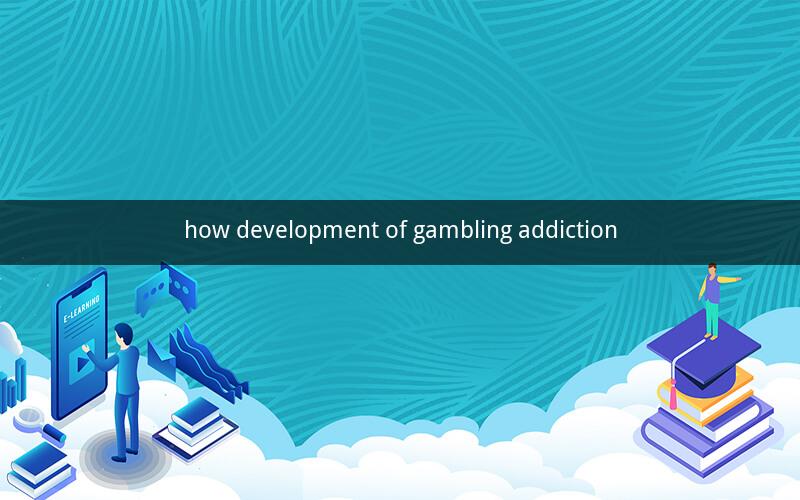
How Development of Gambling Addiction Impacts Individuals and Society
Table of Contents
1. Introduction to Gambling Addiction
2. The Path to Addiction
- Early Exposure to Gambling
- Psychological Factors
- Social Influences
3. Signs and Symptoms of Gambling Addiction
- Financial Consequences
- Emotional and Psychological Impact
- Behavioral Changes
4. The Role of Technology in Gambling Addiction
- Online Gambling Platforms
- Mobile Applications
5. Treatment and Recovery
- Therapeutic Approaches
- Support Groups
6. The Economic and Social Costs of Gambling Addiction
- Personal Financial Struggles
- Family and Relationship Issues
- Public Health Concerns
7. Prevention and Education
- Community Programs
- School-Based Initiatives
8. Conclusion
Introduction to Gambling Addiction
Gambling addiction, often referred to as compulsive gambling or problem gambling, is a condition characterized by an inability to control the urge to gamble, despite negative consequences. This addiction affects individuals of all ages, backgrounds, and socioeconomic statuses. Understanding the development of gambling addiction is crucial in addressing its impact on individuals and society.
The Path to Addiction
Early Exposure to Gambling
Early exposure to gambling can be a significant risk factor for the development of addiction. Children and adolescents who are exposed to gambling at a young age may be more susceptible to developing an addiction later in life.
Psychological Factors
Psychological factors, such as low self-esteem, anxiety, and depression, can contribute to the development of gambling addiction. These factors may lead individuals to seek relief through gambling, which can quickly spiral into an addiction.
Social Influences
Social influences, including peer pressure, family dynamics, and cultural norms, can also play a role in the development of gambling addiction. Individuals who are surrounded by a gambling culture may be more likely to develop an addiction.
Signs and Symptoms of Gambling Addiction
Financial Consequences
One of the most apparent signs of gambling addiction is financial strain. Individuals may experience significant debt, loss of employment, and even bankruptcy due to their gambling habits.
Emotional and Psychological Impact
Gambling addiction can have a profound emotional and psychological impact on individuals. Symptoms may include mood swings, anxiety, depression, and feelings of guilt or shame.
Behavioral Changes
Behavioral changes are also indicative of gambling addiction. Individuals may exhibit increased secrecy, isolation, and a preoccupation with gambling. They may also neglect responsibilities and relationships due to their gambling habits.
The Role of Technology in Gambling Addiction
Online Gambling Platforms
The advent of online gambling platforms has made it easier than ever for individuals to access gambling opportunities. This convenience has contributed to the rise in gambling addiction cases.
Mobile Applications
Mobile applications have further facilitated gambling addiction by allowing individuals to gamble anytime, anywhere. The accessibility of these apps has made it challenging for individuals to control their gambling habits.
Treatment and Recovery
Therapeutic Approaches
Treatment for gambling addiction may include various therapeutic approaches, such as cognitive-behavioral therapy (CBT), motivational interviewing, and contingency management.
Support Groups
Support groups, such as Gamblers Anonymous, can provide individuals with a sense of community and support during their recovery journey.
The Economic and Social Costs of Gambling Addiction
Personal Financial Struggles
Gambling addiction can lead to significant financial struggles, including debt, loss of employment, and bankruptcy.
Family and Relationship Issues
Gambling addiction can also strain family and relationships, leading to conflicts, separation, and even divorce.
Public Health Concerns
Gambling addiction is a public health concern that can have widespread implications, including increased rates of mental health issues, substance abuse, and crime.
Prevention and Education
Community Programs
Community programs can help raise awareness about gambling addiction and provide resources for individuals who may be at risk.
School-Based Initiatives
School-based initiatives can educate students about the risks of gambling addiction and promote healthy decision-making.
Conclusion
The development of gambling addiction is a complex issue that affects individuals and society in numerous ways. Understanding the factors that contribute to addiction, recognizing the signs and symptoms, and implementing effective treatment and prevention strategies are essential in addressing this problem.
Questions and Answers
1. What are the primary risk factors for developing a gambling addiction?
- Early exposure to gambling, psychological factors such as low self-esteem and anxiety, and social influences like peer pressure and family dynamics are primary risk factors for gambling addiction.
2. How can technology contribute to the development of gambling addiction?
- Technology, particularly online gambling platforms and mobile applications, can contribute to the development of gambling addiction by making it easier and more accessible for individuals to gamble.
3. What are the signs of gambling addiction in an individual?
- Signs of gambling addiction include financial strain, emotional and psychological impact, and behavioral changes such as increased secrecy and neglect of responsibilities.
4. What are some common therapeutic approaches for treating gambling addiction?
- Common therapeutic approaches include cognitive-behavioral therapy (CBT), motivational interviewing, and contingency management.
5. How can community programs help in preventing gambling addiction?
- Community programs can help raise awareness about gambling addiction and provide resources for individuals who may be at risk.
6. What is the role of support groups in the recovery process?
- Support groups, such as Gamblers Anonymous, can provide individuals with a sense of community and support during their recovery journey.
7. What are the economic consequences of gambling addiction?
- The economic consequences of gambling addiction include significant debt, loss of employment, and bankruptcy.
8. How does gambling addiction affect family and relationships?
- Gambling addiction can strain family and relationships, leading to conflicts, separation, and even divorce.
9. What are some school-based initiatives to prevent gambling addiction?
- School-based initiatives may include educating students about the risks of gambling addiction and promoting healthy decision-making.
10. How can individuals seek help for gambling addiction?
- Individuals can seek help for gambling addiction by contacting support groups, therapists, or by visiting websites dedicated to gambling addiction resources.